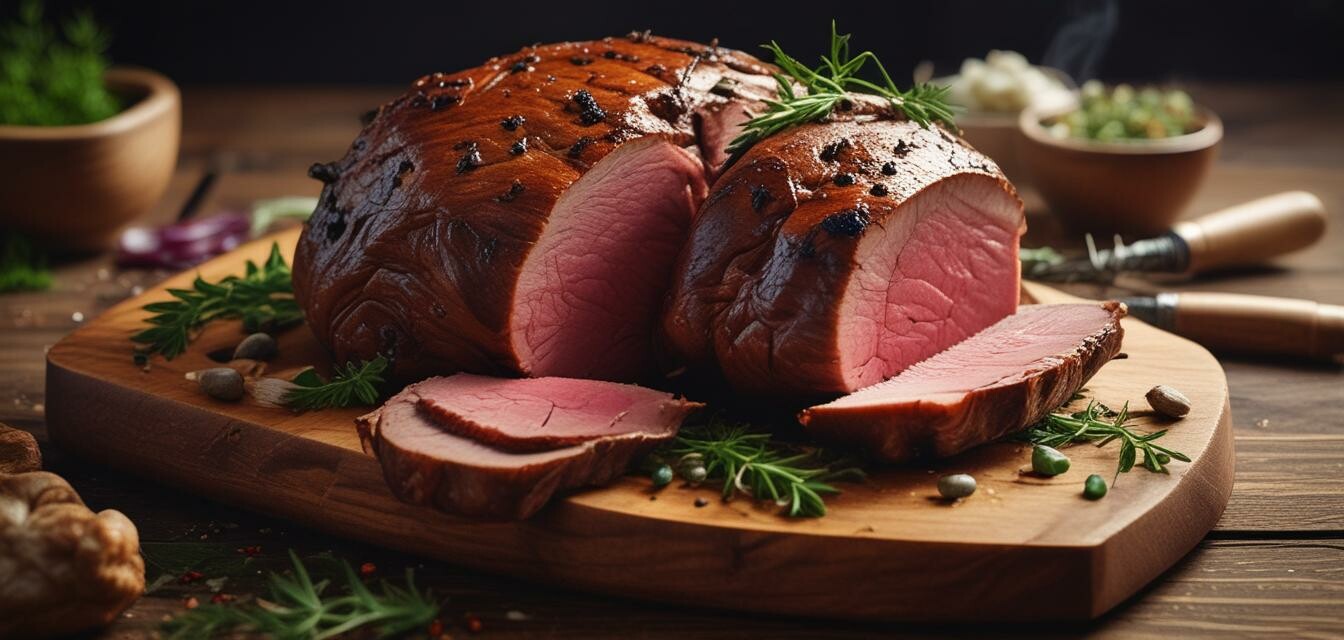
How to Achieve the Perfect Roast
- Understand the different types of roasting techniques for various meats.
- Essential tools and ingredients to achieve a perfect roast.
- Tip on resting and carving roasted meats for maximum flavor.
- Common mistakes to avoid when roasting.
Roasting is one of the most satisfying cooking methods, allowing the flavors of the meat to shine while achieving a beautiful crust. Whether you're preparing a succulent roast chicken for a family dinner or a tender beef roast for a festive gathering, mastering the art of roasting ensures juicy and flavorful results every time. In this guide, we’ll explore various techniques, tips, and common mistakes to avoid, helping you elevate your roasting game to perfection.
Types of roasting techniques
Different meats can benefit from distinct roasting techniques. Here’s a look at a few common types:
| Meat Type | Roasting Technique | Ideal Oven Temperature |
|---|---|---|
| Poultry (e.g., chicken, turkey) | High heat for initial browning, then lower to cook through | 425°F – 350°F |
| Red meat (e.g., beef, lamb) | Sear at high heat, then roast at lower temperature | 450°F – 325°F |
| Pork | Slow roast for tenderness | 375°F |
Essential tools for roasting
To achieve the best results, it’s crucial to have the right tools at your disposal. Here’s a list of essential equipment:
- Roasting pan
- Meat thermometer
- Sharp carving knife
- Cutting board
- Basting brush or spoon
Ingredients that make a difference
While the meat is the star of the show, the right ingredients can enhance the overall flavor profile. Consider these:
- Herbs such as rosemary, thyme, and sage
- Fresh garlic and onions for additional aroma
- Citrus fruits for marinating and brining
- Quality salt and pepper for seasoning
Marinating and seasoning
Marinating or seasoning your meat allows for enhanced flavor. Here’s how to do it:
- Choose your herbs and spices based on the type of meat.
- Rub the seasoning all over the meat, ensuring it’s well coated.
- Allow the meat to marinate in the refrigerator for at least 30 minutes or as long as overnight.
Cooking the perfect roast
When it comes to cooking, follow these steps:
- Preheat your oven according to the meat type.
- Sear the meat to develop a crust, if applicable.
- Add aromatics or vegetables to the roasting pan for additional flavor.
- Use a meat thermometer to ensure you achieve the desired doneness.
- Rest the meat for 10-15 minutes before carving.
Resting and carving the roast
Resting is a crucial step that should not be overlooked. It allows the juices to redistribute, resulting in a more flavorful and juicy cut. Follow these tips:
- Always let the roast rest on a cutting board, covered loosely with foil.
- Use a sharp knife to carve against the grain for tender slices.
Common mistakes to avoid
Even seasoned cooks can make mistakes when roasting. Here are some pitfalls to be aware of:
- Not resting the meat before carving.
- Skipping the searing step for red meats.
- Roasting at inconsistent temperatures.
- Overcrowding the roasting pan, which can lead to steaming instead of roasting.
Pros
- Allows the meat flavors to develop beautifully.
- Provides a versatile method for various meats.
- Achieves a delightful contrast between a crispy crust and moist interior.
Cons
- Can easily lead to overcooking if not monitored.
- Requires some upfront preparation and planning.
Final thoughts on mastering the roast
Mastering the roast can be a rewarding experience that enhances your culinary repertoire. By following the techniques outlined in this guide, you can achieve bold flavors and tenderness in every roast. Remember, practice makes perfect, so embrace your culinary journey and enjoy the delicious results!
For more cooking tips and techniques, check out our Cooking Tips & Techniques blog category. To enhance your roasting skills further, consider exploring our Cookware Sets for the best tools in your kitchen.
If you're interested in learning more about the flavors that can enhance your roast, visit our Specialty Ingredients section. Happy roasting!